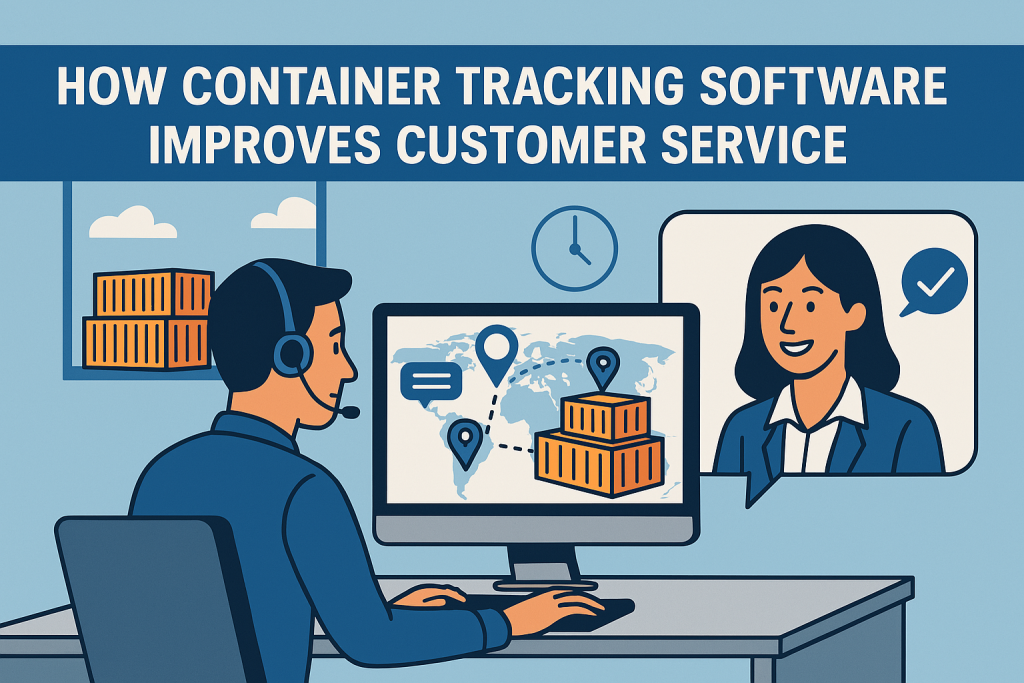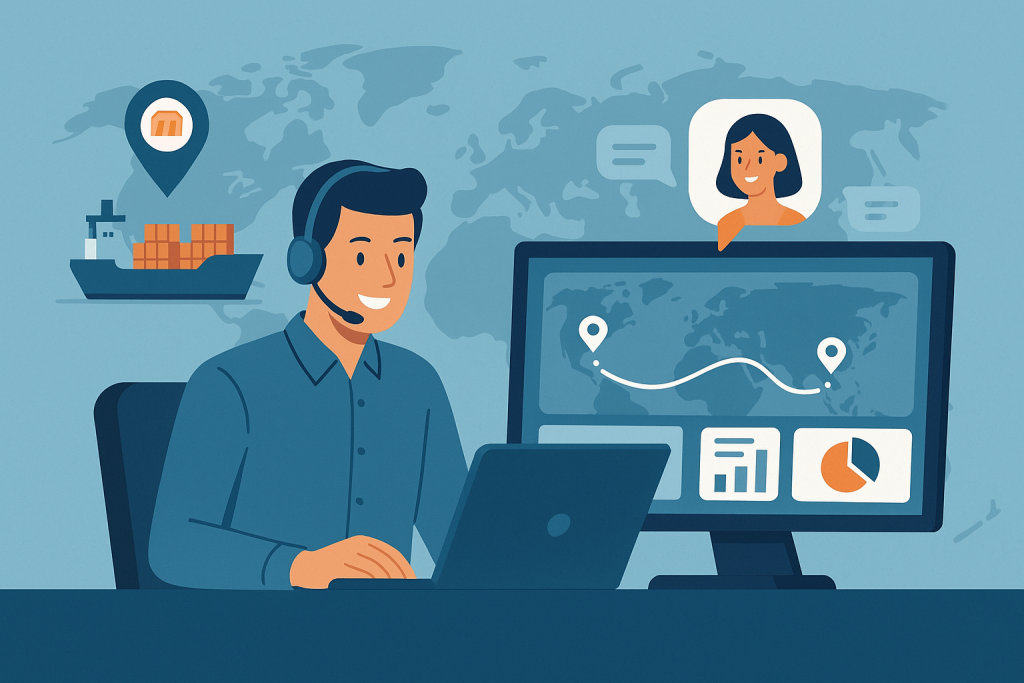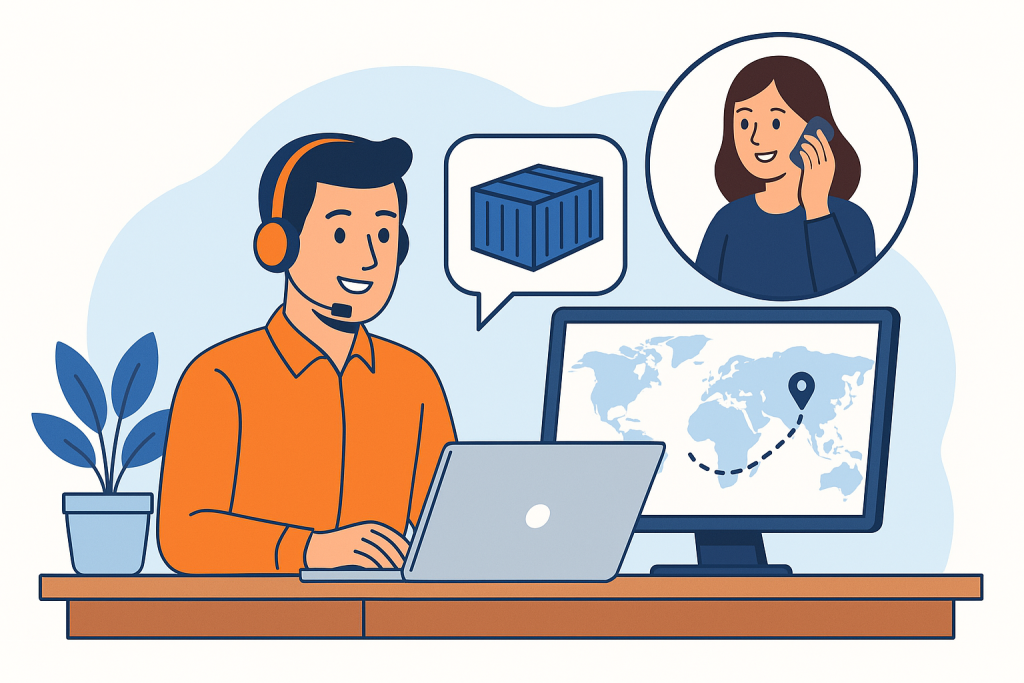How Container Tracking Software Improves Customer Service
For shippers, freight forwarders, and 3PLs, container tracking isn’t just about operational visibility—it’s about offering clients a better experience.

🚨 Customer Service in Logistics: The Visibility Gap
Before container tracking systems became widespread, communication between logistics providers and customers often looked like this:
- ❓ “Where’s my container?”
- ⌛ “Has it cleared customs yet?”
- 📞 “Can you check with the carrier again?”
These questions are time-consuming for your staff—and stressful for your customers. Without real-time data, updates were delayed, vague, or just wrong.
✅ How Container Tracking Solves This
Container tracking software pulls real-time updates from multiple sources—carriers, ports, and vessels—and presents them in a centralized dashboard. But more importantly, it makes that data accessible to your customers in the form of:
- Live tracking portals
- Automated status notifications
- Proactive alerts for delays or exceptions
- Custom tracking links
This empowers clients to check shipment status independently, which builds trust and reduces service tickets.

💡 Key Benefits for Customer Service Teams
1. 📲 Real-Time Status Sharing
Provide your clients with self-service tracking so they don’t have to call or email you for updates.
Result: Reduced inbound requests, faster communication, more transparency.
2. 🚀 Proactive Exception Management
When your system detects a delay—like a customs hold or vessel rerouting—you can notify the customer immediately, often before they notice.
Result: You look proactive, not reactive. Confidence increases, even in the face of disruption.
3. 🧠 Empowered Customer Reps
Customer service teams armed with live tracking dashboards can answer questions faster and with more accuracy.
Result: Fewer escalations, happier clients, less back-and-forth with ops teams.
4. 📈 Enhanced Customer Experience
Clients appreciate visibility. A sleek, branded portal where they can track their containers boosts satisfaction and retention.
Result: Your service stands out from competitors using outdated, manual processes.
5. 🔁 Scalable Communication
If you handle dozens or hundreds of customers, automated tracking updates scale effortlessly—no need to manually check or email each one.
Result: Efficient communication across a growing client base.

🔄 Real-World Example
A mid-size freight forwarder using Linbis integrates container tracking into their operations. With tracking links embedded in each customer’s shipment record, the company:
- Sends automated updates for key milestones
- Reduces “Where is my cargo?” inquiries by 70%
- Improves CSAT scores by offering live visibility
Saves hours per week for customer service teams
🧩 What to Look for in Tracking Tools for Customer Service
Feature | Why It Matters |
Real-time container status | Ensures timely and accurate updates |
Custom tracking links | Lets customers follow shipments directly |
Automated alerts | Reduces need for manual updates |
Multi-language support | Serves global clients more effectively |
Easy integration with CRM | Keeps your support team informed |
➡️ Platforms like Linbis offer integrated customer tracking portals with custom alerts, all from one cloud-based solution.

🎯 Final Thoughts
Great customer service in logistics isn’t just about fast response—it’s about clear, timely, and proactive communication.
Container tracking software bridges the gap between operations and customer expectations, giving your team the tools to provide modern, transparent service in an industry where visibility is everything.
If your clients are still calling to ask, “Where’s my container?”—it’s time for a better answer.
